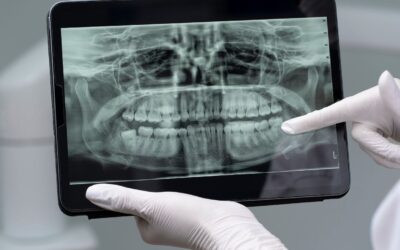Teeth cleaning is one of the most fundamental parts of oral health. Though it’s common practice to visit the dentist every six months for this procedure, many people don’t fully understand the intricate steps involved. So, what happens during teeth cleaning?
Teeth cleaning involves more than just a simple scrub of your teeth. It’s a multi-step process designed to ensure that your teeth and gums remain healthy, your smile is bright, and you avoid future dental problems. Whether it’s your first visit to the dentist for a professional cleaning or you’re preparing for a routine checkup, understanding what happens during teeth cleaning can help alleviate any concerns and ensure you feel confident and prepared.
In this article, we will walk through the entire process of teeth cleaning, explaining each step in detail, why it’s necessary, and how it helps maintain your overall oral health. Additionally, we will discuss the benefits of regular cleanings, answer some frequently asked questions, and give tips on how to maintain your oral hygiene at home.
What Happens During Teeth Cleaning? A Step-by-Step Process
Initial Consultation and Examination
Before the actual cleaning begins, your dental professional will conduct an initial examination to assess your oral health. The goal is to check for any underlying issues that might affect the teeth cleaning process or indicate a more serious condition. The dentist or dental hygienist will look for signs of:
-
Cavities
-
Gum disease (gingivitis or periodontitis)
-
Loose teeth
-
Oral infections
-
Abnormalities such as oral cancer
During this exam, the dental hygienist will typically take X-rays of your teeth if needed. The dentist will then review these images to check for problems that aren’t visible to the naked eye. They’ll also update your medical history and ask about any medications you’re taking, as some conditions, such as diabetes or heart disease, can affect your oral health and may require special considerations during the cleaning process.
Importance of the Initial Examination:
-
Identifies potential dental issues early on.
-
Helps create a personalized treatment plan if needed.
-
Ensures safety for individuals with underlying health conditions.
Scaling: Removing Plaque and Tartar
The next and most essential step of the teeth cleaning process is scaling, which involves the removal of plaque and tartar from your teeth and gums. Plaque is a sticky, colorless film of bacteria that constantly forms on your teeth, especially in hard-to-reach areas. If not removed, plaque hardens into tartar, which can only be removed by a dental professional.
Why is Scaling Necessary?
-
Plaque & Tartar Buildup: While brushing and flossing help remove plaque, some areas, such as between the teeth or along the gum line, are hard to reach, making it impossible to eliminate all plaque at home.
-
Prevention of Gum Disease: Plaque and tartar are the leading causes of gum disease. If not removed, they can irritate and inflame the gums, leading to gingivitis, which can progress to periodontitis, a more severe form of gum disease.
How Does Scaling Work?
-
The hygienist will use a tool called an ultrasonic scaler that vibrates to break down plaque and tartar.
-
They may also use hand-held instruments like scalers or curettes for finer scaling, especially around the gum line.
Scaling typically doesn’t cause pain, though some individuals may feel slight discomfort, particularly if they have sensitive gums or a lot of plaque buildup.
Key Points about Scaling:
-
Targets hard-to-reach areas where plaque accumulates.
-
Helps to prevent gum disease and cavities by removing harmful bacteria.
-
Essential for maintaining long-term oral health.
Polishing Your Teeth: For That Smooth Finish
Once the scaling is complete, your teeth are polished. Polishing is done using a special abrasive paste, which is gently buffed onto your teeth with a polishing tool. This step does more than just improve the aesthetic appearance of your teeth – it also serves important functional purposes.
What Does Polishing Do?
-
Surface Stain Removal: It helps eliminate surface stains caused by foods, beverages, or tobacco use.
-
Smooth Surface: Polishing gives your teeth a smooth, shiny surface, making it harder for plaque to accumulate in the future.
-
Freshens Breath: It also leaves your mouth feeling fresh and clean, removing bacteria that can cause bad breath.
Polishing typically involves no discomfort, and many people find the process to be relaxing.
Why Polishing Is Important:
-
Improves your smile’s appearance.
-
Makes it easier to keep teeth clean between dental visits.
-
Reduces the chances of plaque re-accumulating quickly.
Fluoride Treatment for Extra Protection
After your teeth have been scaled and polished, many dental professionals apply fluoride treatment as the final step in the cleaning process. Fluoride is a mineral that strengthens tooth enamel, providing an extra layer of protection against cavities and decay.
Why Fluoride Is Beneficial:
-
Cavity Prevention: Fluoride helps to remineralize weakened tooth enamel, preventing cavities and decay.
-
Reduces Tooth Sensitivity: Fluoride can also reduce tooth sensitivity, which can be a common issue after cleaning.
-
Long-Lasting Protection: The fluoride treatment generally lasts for several months, offering added protection between cleanings.
Fluoride treatments are quick and easy to apply. You may be asked to avoid eating or drinking for a few hours after the treatment to allow it to fully absorb into your teeth.
Post-Cleaning Advice and Follow-Up Care
Once the cleaning process is complete, your dentist will provide advice on how to maintain good oral hygiene at home. They will remind you of the importance of regular brushing and flossing, and may even demonstrate techniques for brushing and flossing effectively.
Post-Cleaning Tips:
-
Brush Twice a Day: Use a fluoride toothpaste and brush your teeth for two minutes, twice a day.
-
Floss Daily: Flossing helps remove food particles and plaque from areas between your teeth that brushing can’t reach.
-
Limit Sugary Foods: Try to reduce your intake of sugary foods and drinks, which can lead to plaque buildup.
-
Regular Checkups: Keep your dental appointments every six months for routine cleanings and exams.
If your dentist noticed any issues during the exam (such as gum disease or cavities), they will discuss the next steps for treatment, which could include further cleanings, fillings, or other procedures.
Why Is Teeth Cleaning Important?
Teeth cleaning isn’t just about maintaining a bright smile. Regular professional cleanings are vital for preventing serious oral health issues that can arise from plaque and tartar buildup. While brushing and flossing daily are essential for oral hygiene, professional cleaning ensures that areas that are hard to reach get the attention they need.
Key Benefits of Regular Teeth Cleaning:
-
Prevents Cavities and Tooth Decay: Plaque and tartar can cause cavities, which, if left untreated, lead to tooth decay and tooth loss.
-
Prevents Gum Disease: Regular cleanings help prevent gum disease, which can cause swollen, bleeding gums and tooth loss.
-
Boosts Overall Health: Oral health is linked to overall health. Poor oral hygiene has been linked to heart disease, diabetes, and other health issues.
FAQ
1: Does Teeth Cleaning Hurt?
Teeth cleaning should not cause pain. However, people with sensitive gums or significant tartar buildup might feel some discomfort. If you’re worried about discomfort, talk to your dentist ahead of time – they may be able to offer numbing gel or other methods to make the process more comfortable.
How Often Should I Get My Teeth Cleaned?
Most people should schedule a professional cleaning every six months. However, if you have certain risk factors, such as a history of gum disease or cavities, your dentist may recommend more frequent cleanings, such as every 3-4 months.
Can Teeth Cleaning Whiten My Teeth?
While teeth cleaning can remove surface stains, it is not designed to whiten teeth. For more significant whitening, you should consider professional teeth whitening treatments.
Is Teeth Cleaning Covered by Insurance?
Teeth cleaning is typically covered by most dental insurance plans as part of your preventive care. However, always check with your insurer for specifics regarding coverage.
Can Teeth Cleaning Prevent Cavities?
Yes, professional teeth cleaning helps prevent cavities by removing plaque and tartar that could lead to tooth decay.
Conclusion
In conclusion, understanding what happens during teeth cleaning can make your visit to the dentist a much more manageable experience. The cleaning process involves scaling to remove plaque and tartar, polishing for a smooth and shiny surface, and fluoride treatment to protect your enamel. Regular cleanings are essential to keeping your teeth and gums healthy and preventing issues like gum disease, cavities, and bad breath. Following your dentist’s advice and maintaining a solid at-home oral hygiene routine will ensure your smile stays bright and healthy for years to come.
Remember, routine cleanings are a key part of a healthy oral care regimen, so don’t skip them. Your teeth will thank you!



